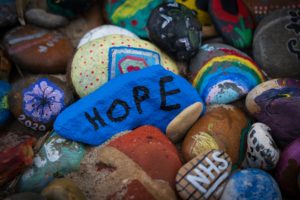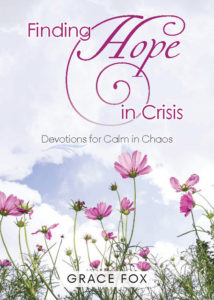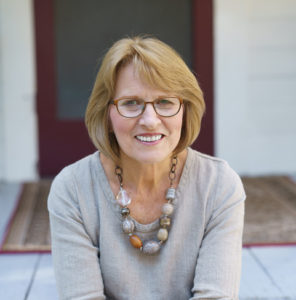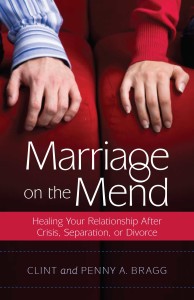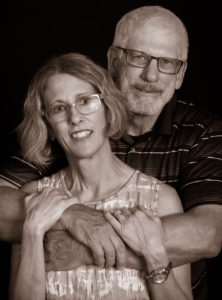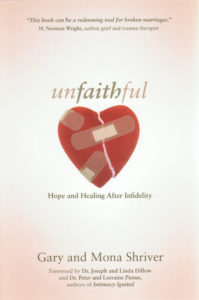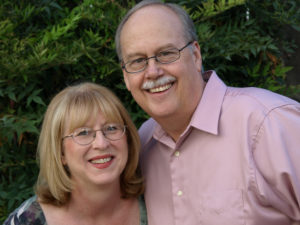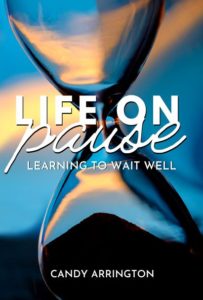 WAITING IS NOT something most of us like to do. I usually try to get to a doctor’s appointment right on the minute rather than arriving early to cut down on the wait time. I groan when I see the light turning red right before reaching the intersection because I know it means waiting. Most of all, when my husband and I were separated, I didn’t understand why God didn’t answer my prayers immediately and bring our marriage back together sooner. Waiting is hard. In stressful situations, it can even cause us to question God’s goodness. But author Candy Arrington sees purpose in our waiting. In her new book, Life on Pause: Learning to Wait Well, she explores what it means to us when our life is “On Pause” and even shows us how waiting can be a blessing.
WAITING IS NOT something most of us like to do. I usually try to get to a doctor’s appointment right on the minute rather than arriving early to cut down on the wait time. I groan when I see the light turning red right before reaching the intersection because I know it means waiting. Most of all, when my husband and I were separated, I didn’t understand why God didn’t answer my prayers immediately and bring our marriage back together sooner. Waiting is hard. In stressful situations, it can even cause us to question God’s goodness. But author Candy Arrington sees purpose in our waiting. In her new book, Life on Pause: Learning to Wait Well, she explores what it means to us when our life is “On Pause” and even shows us how waiting can be a blessing.
Linda: The books we write often emerge out of our own life experiences. What would you say was the motivation behind your writing Life on Pause: Learning to Wait Well?
Candy: Several years ago, my husband lost two jobs within a year because of declining work in his field. After the first job loss, he secured employment within a few weeks. However, after the second, we encountered a life pause, a time of uncertainty and frustration. As weeks became months, we dealt with the anxiety and fear associated with waiting.
However, this was not our first experience with a season of waiting. Early in our marriage, we traveled the difficult road of infertility. Those years of surgeries, procedures, and heartache were stressful and tested our faith. Thankfully, I was eventually able to conceive and deliver two healthy children over a four-year period.
I’d like to say I handled the years of infertility well, but, in truth, I was angry with God and hurt by thoughtless and intrusive comments from those who had no right to make judgements or give unwanted advice. The infertility years taught me a lot about trusting God and tuning out Satan’s voice. Often, we believe Satan’s lies instead of focusing on promises in God’s Word.
Sometimes, when God sidelines us in a season of waiting, we fail to learn from the experience because we are so consumed with worry about what will happen next. Learning to wait well is a challenge, but if we’re willing, we can learn and grow in a time of waiting, while also strengthening our faith muscles.
Linda: Why do you think most people struggle with waiting?
Candy: We live in an impatient society. We’re trained by advertising to think we must respond immediately to offers, hurry to make purchases, or sign up for events so we don’t miss out. We chafe at delays in drive-thru lines or other waiting scenarios. By our very nature as humans, we are impatient. We want what we want without delay, regardless of consequences or who is hurt by our impulsiveness.
Waiting is counterculture, and like so much in the life of faith, requires us to take a step back from urgency, look to God for direction and discernment, and trust his timing.
Linda: That is so very true. When I tell people my husband and I were separated for three years, people are aghast that I could wait that long for God to bring healing to our marriage. Waiting is hard, but I believe God uses it for His purposes. Tell me, what do you think are the benefits of waiting? Is it ever beneficial?
Candy: We live in a world of instant everything, so waiting feels negative. God’s plans, methods, and time frame are rarely ours, and he has reasons for allowing life pauses. Here are a few I’ve discovered:
Protection – God sees the full picture of our lives while we see only snapshots. Waiting may be God’s way of protecting us from potential 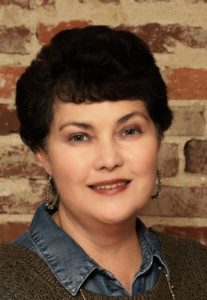 hazards of which we are unaware.
hazards of which we are unaware.
Preparation – A time of waiting prepares us for what lies ahead. Each difficult situation or period of waiting requires us to acknowledge God, trust him for resolution, and prepares us for future challenges.
Patience – Life pauses help us to cultivate patience, which is something most of us lack. Patience requires discipline, and discipline translates positively into other areas of life.
Rest – A season of waiting may be solely for the purpose of providing rest, a chance to reassess, or recover from trauma, stress, or grief.
Reflection – Most of us move through life at such a rapid pace we rarely take time to process emotions, spend more than brief moments in Bible study and prayer, and reflect on what God is doing in our lives. Seasons of waiting slow us and help us gain new perspective on what is truly important.
Renewal – Life is hard, and obedience to God’s directive to pause allows time for recharging physically, emotionally, and mentally.
Linda: All of those are great points. In light of what we’ve all been going through over the last two years, do you feel the timing of the publication of Life on Pause is significant?
Candy: Yes, when I presented this book idea to a publisher at a conference in 2019, it was not the book I had planned to pitch. But while I was waiting for my appointment, God reminded me of an article I wrote several years before for CBN.com titled “6 Simple Truths for Seasons of Waiting.” I was resistant to moving in a different direction because I had no proposal for a book on waiting, but I pulled up the article on my phone and used it as my outline. Six months later, when I signed a contract for the book, I had no idea our country, and our world, were about to enter a time of waiting related to the pandemic.
Looking back, I can see how God orchestrated the timing of the writing of my book and the publication, and, in fact, the idea for the book in the first place. I was much more in tune with the emotions and uncertainty of waiting as I wrote, and had greater insight, because I was living it!
That is how it is when our lives take an unexpected detour. Often, we can’t see God’s hand in our circumstances until after we wade through deep waters and reach the shore on the other side. Then, we can see he guided us, removed obstacles, and held us up when turbulent trials threaten to pull us under.
Linda: Are there any features in your book, Life on Pause that seem to have ministered most to readers?
Candy: I believe some of the most powerful parts of the book are the eight personal stories of waiting. So many people have said they identify with one or more of the stories because of the honesty and transparency of those who were willing to share.
Often, privacy or embarrassment prevents us from talking about hard life experiences, but when we share our difficulties, and how God taught us in those circumstances, others receive encouragement for what they are facing.
Linda: What do you most want readers to take away from this book?
Candy: In reading Life on Pause, I want readers to learn to see positives when sidelined in a time of waiting, or really in any situation they encounter that causes them to feel out of control or doesn’t make sense to them. I hope readers will realize how crucial it is to trust God’s timing rather than rushing ahead. I want them to cultivate listening ears that are open to God’s direction. When viewed from God’s perspective, waiting is a gift. Embrace waiting. Learn from it. Utilize it. And as you wait, draw closer to God.
Linda: Where can people purchase Life on Pause: Learning to Wait Well as well as find out more about your ministry and your other books, such as When Your Aging Parent Needs Care and AFTERSHOCK: Help, Hope, and Healing in the Wake of Suicide
Candy: My books can be found on Amazon, Barnes & Noble and other online booksellers and local stores as well. You can see more about my other books and ministry at CandyArrington.com


 WHEN THE YEARS begin to creep up on you faster than you’d like, you may become apprehensive about the changes taking place. Getting older can seem like a real bummer. But author Deb DeArmand has taken the challenge to offer some encouragement for you, along with a lot of laughs, in her new book,
WHEN THE YEARS begin to creep up on you faster than you’d like, you may become apprehensive about the changes taking place. Getting older can seem like a real bummer. But author Deb DeArmand has taken the challenge to offer some encouragement for you, along with a lot of laughs, in her new book, 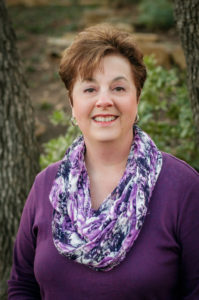 if we allow it to do so. It may cause us to lose self-confidence and begin second-guessing ourselves. It can also impact our opportunities as well.
if we allow it to do so. It may cause us to lose self-confidence and begin second-guessing ourselves. It can also impact our opportunities as well.
